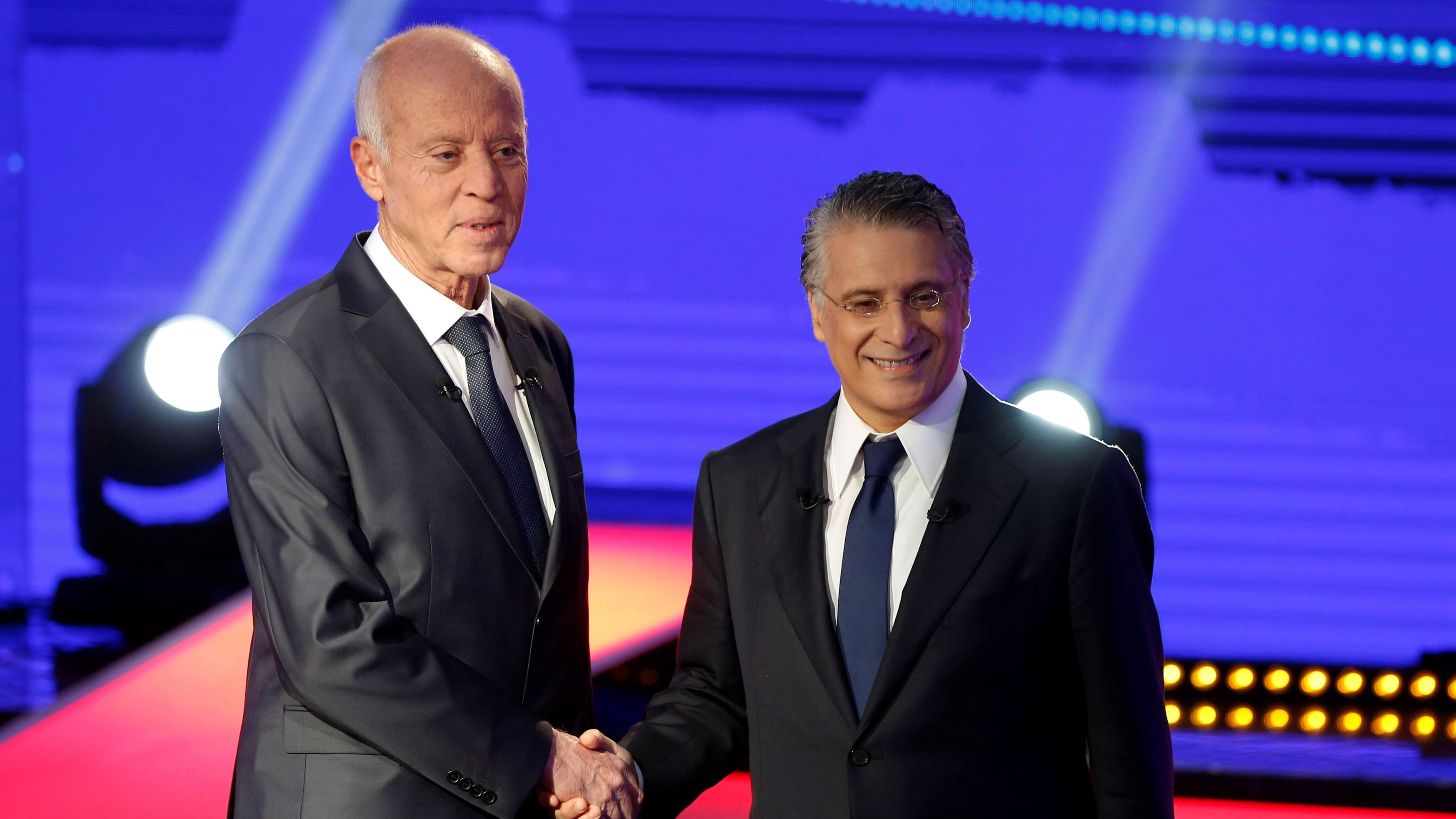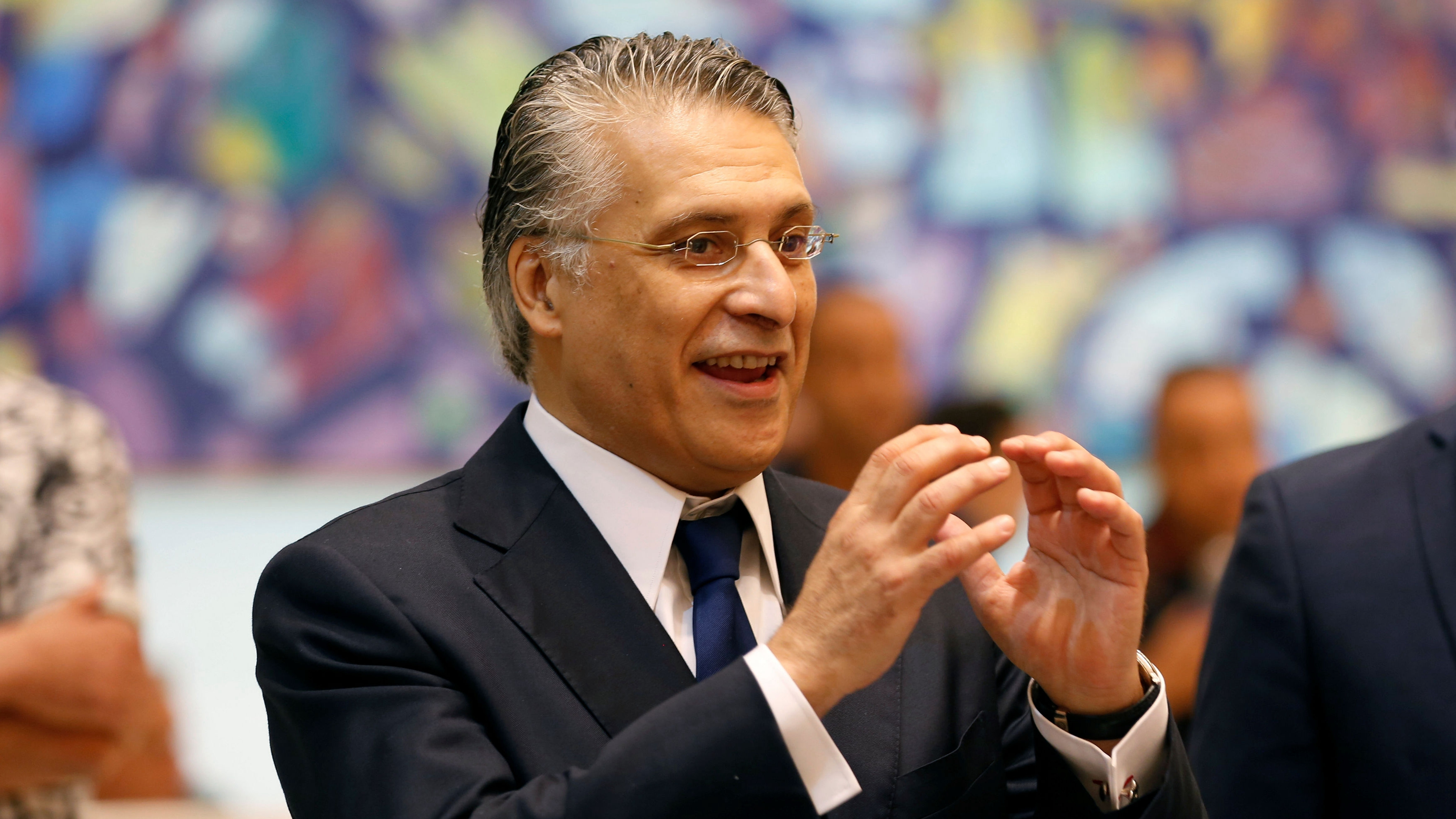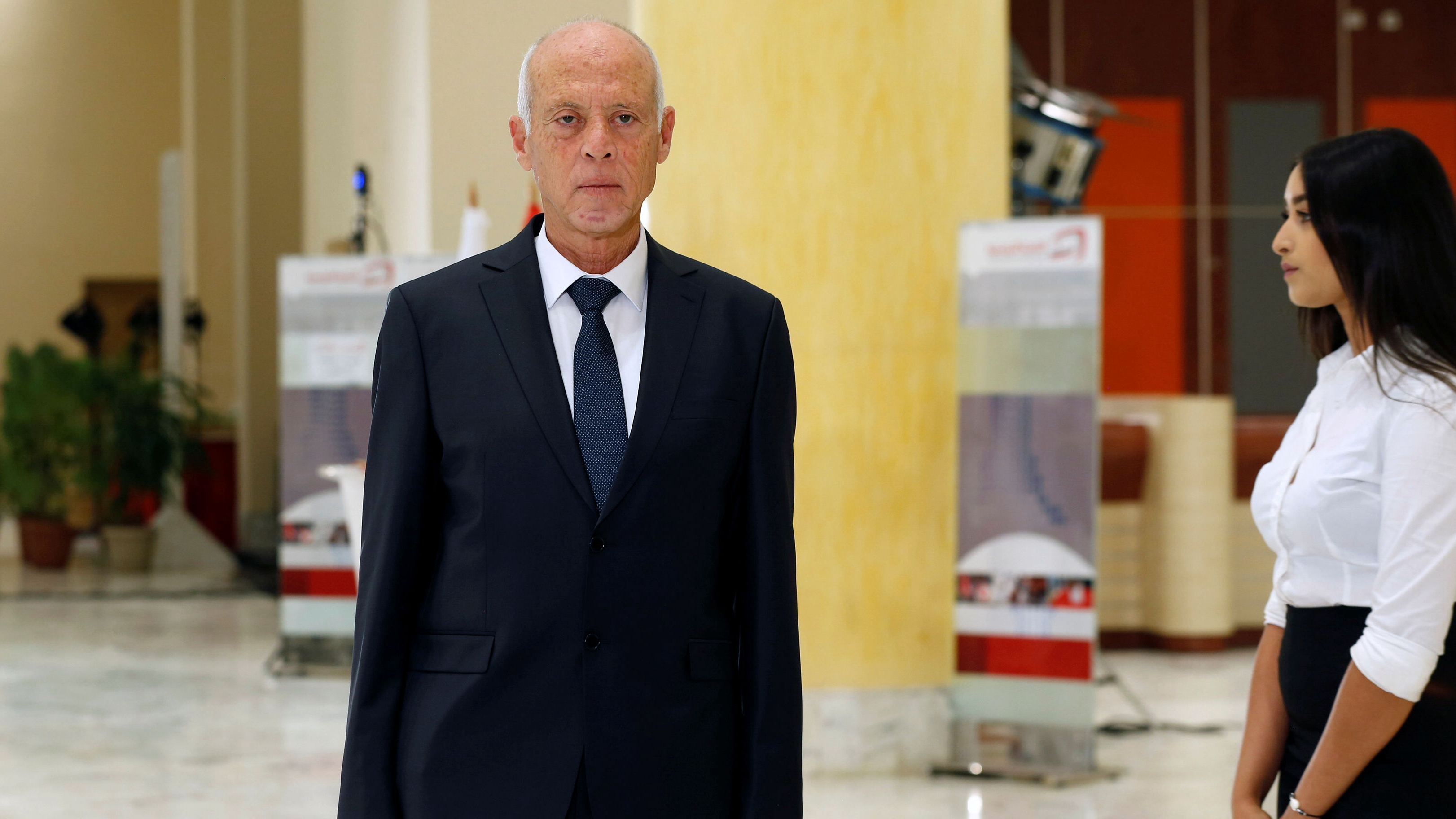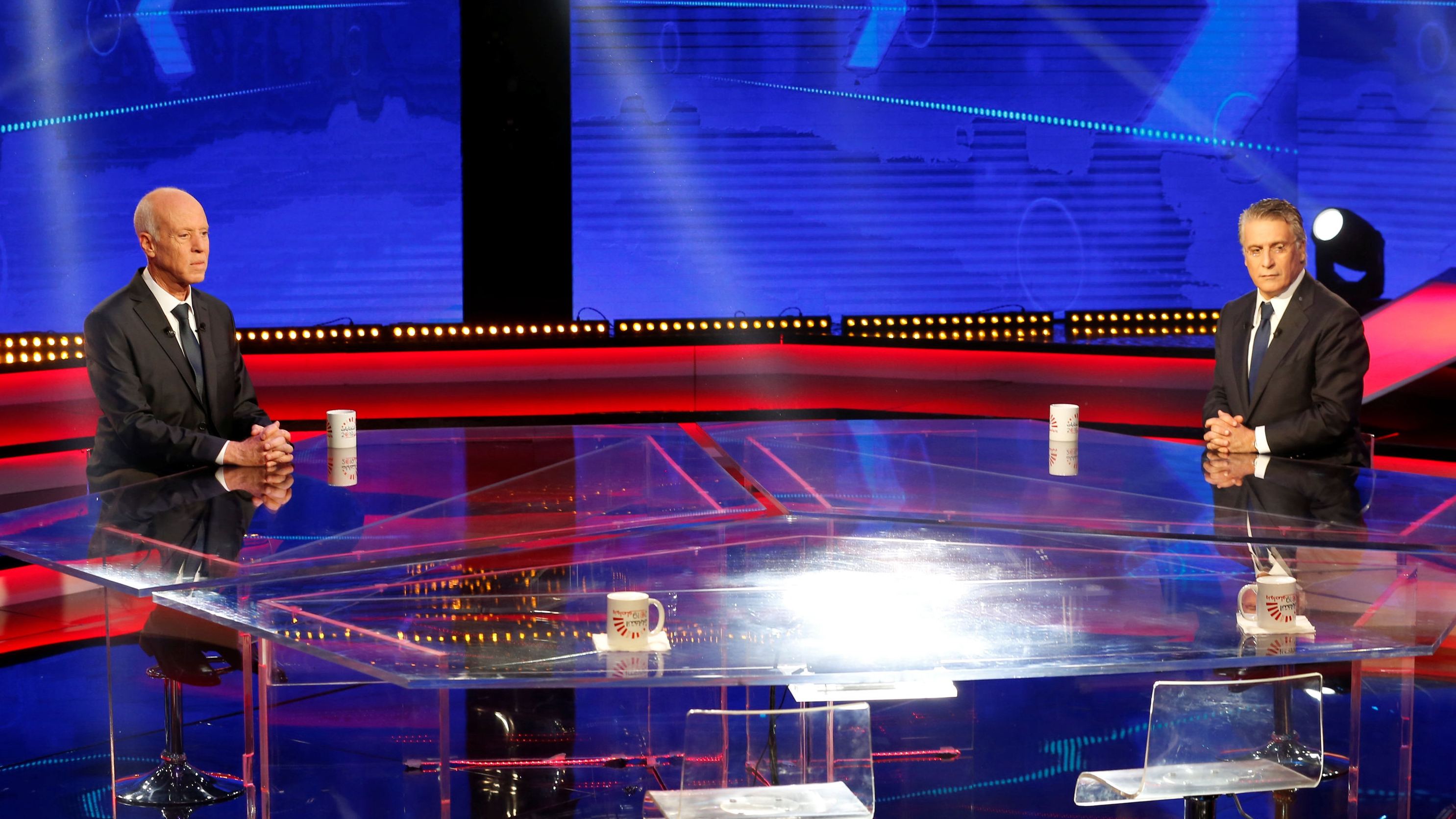
One candidate is a slick tycoon just days out of jail, the other an understated constitutional law expert.
When Tunisians vote in a presidential run-off election on Sunday, the choice will be between two sharply different outsiders: Nabil Karoui, a liberal media mogul, and Kais Saied, a conservative academic.
Who are the candidates?
Karoui and Saied go head-to-head for a five-year term after defeating over 20 other candidates in September's first round of voting.
The president has fewer powers than the prime minister – who will be selected by parliament – but is the country's most senior elected official.
The high number of candidates and consequent low totals for the anti-establishment top two – Karoui took 15.6 percent and Saied 18.4 percent – mean the final result is very uncertain.
Nabil Karoui
Karoui has made poverty and economic liberalism the central themes of his campaign, the majority of which he has conducted from behind bars. He was released from jail just days before the election, having been arrested in August on charges of tax evasion and money-laundering.

Tunisian presidential candidate Nabil Karoui before a televised debate in Tunis, October 11, 2019. /VCG Photo
Tunisian presidential candidate Nabil Karoui before a televised debate in Tunis, October 11, 2019. /VCG Photo
The 56-year-old, who owns a TV channel Nessma, has combined a slick media message with a commitment to alleviate poverty and carry out reforms aimed at attracting foreign investment. He traveled the country listening to the grievances of ordinary people as part of one program on his channel.
His party, Qalb Tounes, came second in the October 6 legislative elections behind the Islamist-inspired Ennahdha party.
Kais Saied
Saied is an independent law teacher whose platform has been dominated by an anti-corruption message, social conservatism and a promise of radical electoral reform.

Tunisian presidential candidate Kais Saied before a televised debate in Tunis, October 11, 2019. /VCG Photo
Tunisian presidential candidate Kais Saied before a televised debate in Tunis, October 11, 2019. /VCG Photo
The 61-year-old, whose stern manner and expressionless style has earned him the nickname "Robocop," has avoided mass rallies and instead relied on door-to-door campaigning.
He has pushed a "power to the people" message involving decentralization of power by the creation of new local councils and has also defended the death penalty and criminalization of homosexuality.
Karoui's jailing and the election
Karoui was jailed for the majority of the campaign. Prosecutors say the tycoon's arrest was the result of a three-year investigation, while supporters argue it was politically-motivated.
The arrest hangs over the election and Karoui remains under investigation.
If Karoui loses on Sunday he could launch a legal challenge to the result, arguing his campaign was hindered by being incarcerated. Saied put his campaign on hold last week, saying he wanted to avoid an unfair advantage. That move, coupled with Karoui's release on Wednesday, could make such a challenge more difficult.
If Karoui wins, he will be immune from prosecution until he leaves office.
Issues aired in TV showdown
The candidates went head-to-head in a televised debate on Friday, just days after Karoui's release, in a last effort to win the backing of Tunisia's seven million voters.
Hours before the debate, thousands of supporters of both finalists rallied separately in the heart of Tunis. Tunisia's second free presidential poll since the 2011 Arab Spring revolt is the country's first to be accompanied by televised debates.

Tunisia's presidential candidates Kais Saied and Nabil Karoui attend a debate in Tunis, October 11, 2019. /VCG Photo
Tunisia's presidential candidates Kais Saied and Nabil Karoui attend a debate in Tunis, October 11, 2019. /VCG Photo
AFP reported that Karoui stuck to his key themes during the head-to head, appearing relaxed but occasionally hesitant, while Saied remained serious but at ease when defending his decentralization of power plan.
Both candidates are running on anti-establishment platforms in a country grappling with a stagnant economy, high unemployment, failing public services and rising prices.
Unemployment, which primarily affects the young, hovers around 15 percent and the cost of living has risen by close to a third since 2016.
(With input from AFP)